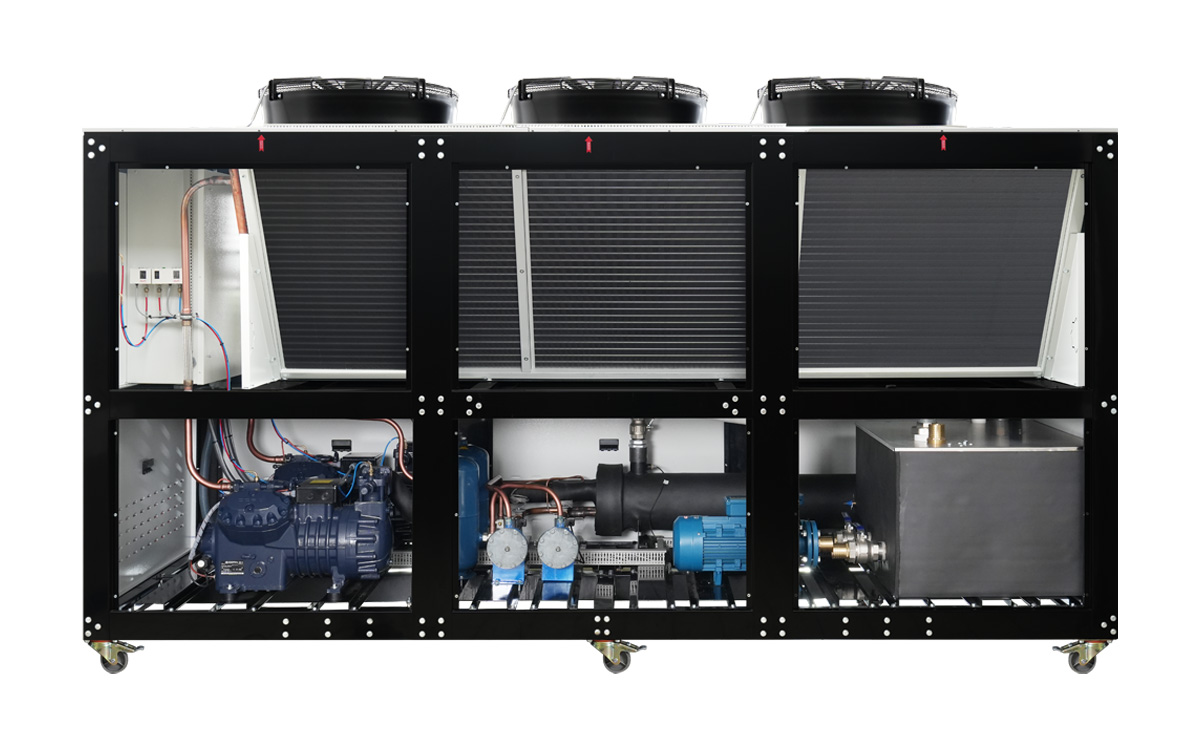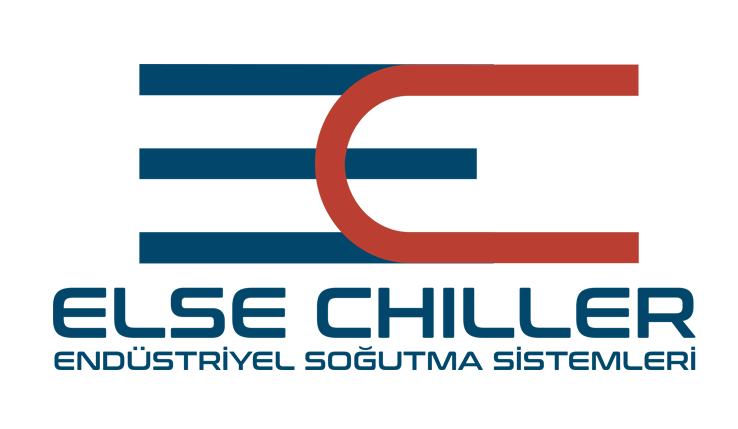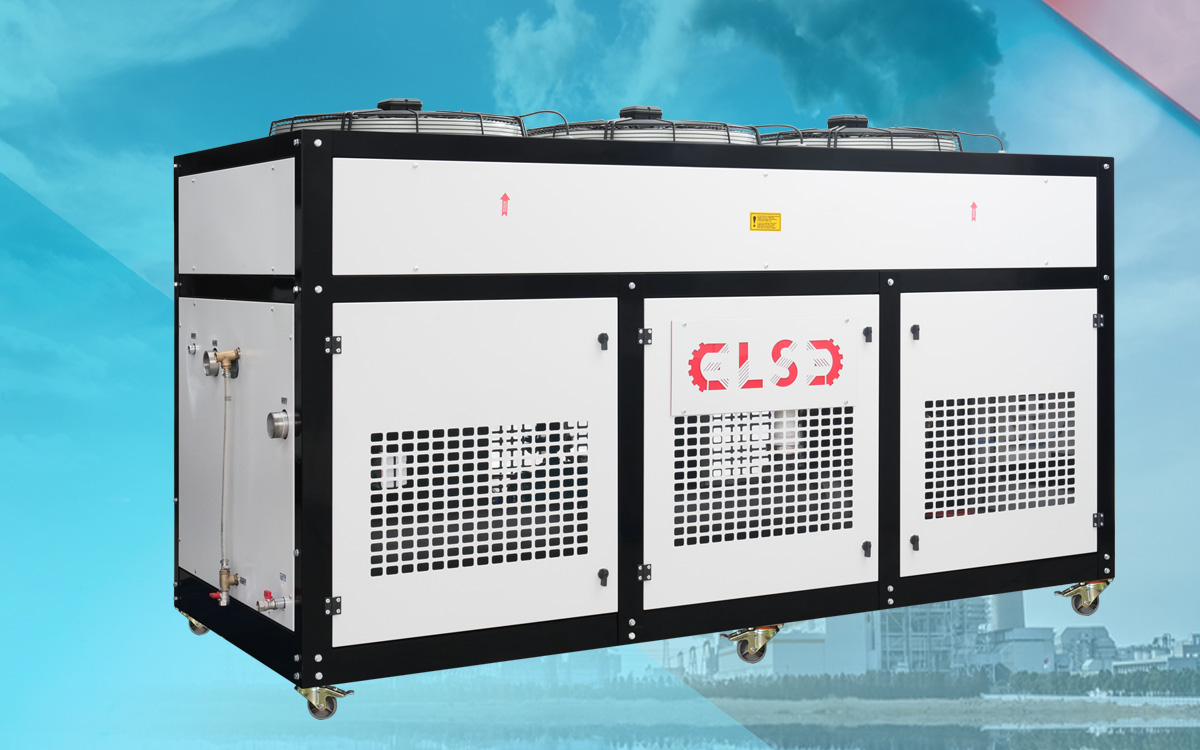What to Consider When Choosing a Chiller?
Cooling in industrial facilities is of critical importance for many processes to operate smoothly and efficiently. One of the most basic equipment that meets industrial cooling needs is the chiller cooling type. The large number of chiller models with different capacities and features can make it complicated to make the right choice. As Else Makina, we have prepared this blog post to guide you in your chiller selection process. Here are the basic factors to consider when choosing a chiller:
- Cooling Capacity Requirement:
The most basic step in chiller selection is to correctly determine the cooling capacity required by your facility or the equipment to be cooled. This capacity is usually expressed in kilowatts (kW) or tons of cooling (RT). When determining capacity requirements, you should consider the following factors:
- Area or Equipment to be Cooled: Which areas or machines will be cooled and their dimensions are important.
- Heat Load: The amount of heat generated during your processes and how quickly this heat must be removed are critical factors.
- Operating Temperatures: The inlet and outlet temperatures of the fluid to be cooled (water, glycol, etc.) and the ambient temperature should be taken into account.
- Future Needs: If a possible expansion or capacity increase is anticipated in your facility, your selection should be made accordingly should be.
- Chiller Type:
There are different chiller types depending on the cooling capacity required and the application area. The most common chiller types are:
- Air Cooled Chillers: These chillers, whose condensers are cooled by air, are generally easier to install and require less maintenance. They are suitable for outdoor installation.
- Water Cooled Chillers: These chillers, whose condensers are cooled by water, generally offer higher efficiency and operate more quietly. However, they require a cooling tower or other water source.
When determining the most suitable chiller type for your application, it is important to evaluate factors such as your facility’s characteristics, your energy efficiency expectations, and your budget.
- Energy Efficiency:
Since chillers are continuously operating systems, their energy consumption can constitute a significant cost item. Therefore, choosing a model with high energy efficiency will provide significant savings in the long term. Energy efficiency is generally expressed with the following values:
- COP (Coefficient of Performance): The ratio of cooling capacity to electrical energy consumed. Higher COP value means higher efficiency.
- EER (Energy Efficiency Ratio): It is the ratio of cooling capacity (BTU/hour) to the electrical energy consumed (Watt).
When choosing a chiller, compare these values and make sure to choose the most efficient model.

- Compressor Type:
Compressors, which can be described as the heart of the chiller, also play a critical role in terms of energy efficiency and performance. The following compressor types are generally used in different chiller models:
- Scroll Compressors: Commonly used in smaller capacity chillers. They operate silently and without vibration.
- Screw Compressors: Preferred in medium and high capacity chillers. They offer high efficiency and long life.
- Piston Compressors: Ideal for very high capacity applications. They provide high efficiency and reliability.
It is important to choose a chiller with the most suitable compressor type for your application requirements.
- Control System:
Modern chillers have advanced control systems. These systems optimize the chiller’s operating conditions, increasing energy efficiency and ensuring safe system operation. When making a selection, it will be useful to pay attention to the following control system features:
- Microprocessor Control: Provides precise temperature control and easy use.
- Automatic Fault Diagnosis System: Minimizes downtime by detecting possible problems early.
- Remote Monitoring and Control: Provides the opportunity to monitor and intervene in the performance of the chiller remotely.
- Integration into Building Management System (BYS): The ability to work in harmony with central control systems is important.
- Brand and Service Network:
Choosing a chiller that is a product of a reliable brand is important for long-lasting and trouble-free use. In addition, the brand’s widespread service network allows you to receive fast and effective support in case of possible malfunctions. As Else Makina, we offer reliable solutions to our customers with our experience in the sector and wide service network.
- Budget:
When choosing a chiller, it is important to consider operating costs as well as the initial investment cost. A model with higher energy efficiency may have a higher initial investment cost, but it can reduce total costs by saving energy in the long run.
Chiller selection is a process that requires careful evaluation and accurate analysis. Choosing the right chiller by considering your business’s needs, energy efficiency expectations and budget will increase your efficiency and reduce your costs in the long run. As Else Makina, we would be happy to support you with our expert staff in chiller selection and other cooling solutions. You can contact us to find the most suitable solution for your needs.
The first and most important step in chiller selection is to correctly calculate the cooling capacity required by your facility or equipment to be cooled. The following factors should be taken into consideration when making this calculation:
- Characteristics of the Environment or Equipment to be Cooled: Factors such as volume, surface area, and insulation status directly affect the cooling requirement.
- Process Heat Load: The amount of heat generated in the process to be cooled (in BTU/hour or kW). Equipment manufacturers usually specify this value. In cases not specified, detailed heat transfer calculations may be required.
- Inlet and Outlet Water Temperatures: The difference between the desired inlet and outlet temperatures of the water or fluid to be cooled is an important factor affecting the cooling capacity.
- Environmental Conditions: External factors such as the temperature and humidity of the environment where the chiller will operate can affect the performance of the chiller and therefore its selection. Especially in air-cooled chiller systems, ambient temperature is a critical factor.
- Future Needs: If there is a possible expansion or capacity increase in your facility, taking this into consideration when making your selection will provide an advantage in the long run.
We Are With You As Else Makina:
Choosing the right chiller can be a complex process. As Else Makina, we are happy to help you find the most suitable chiller solution for your business needs with our expert staff and wide product range. We are always with you with our needs analysis, capacity calculation, technical consultancy and after-sales support services.
Remember, choosing the right chiller is not just an investment, but also an important step to be taken for the efficiency and sustainability of your business.
Contact Us:
You can contact Else Makina experts to get more information about the most suitable chiller solutions for your bu


